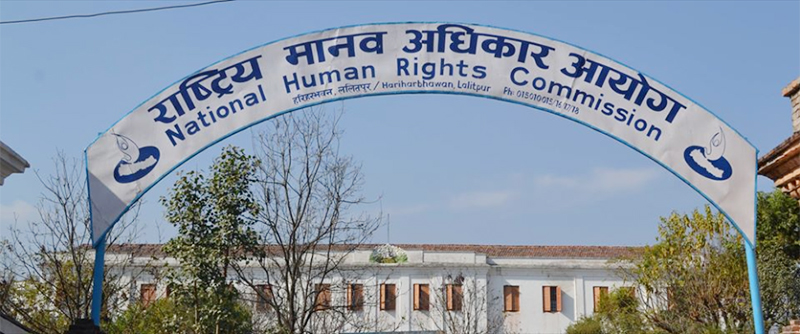‘Pandemic hits all sectors, vulnerable groups’
KATHMANDU, JANUARY 5
The COVID-19 crisis has exacerbated the vulnerability of least protected groups in society, warns the National Human Rights Commission.
According to ‘Human Rights Situation During COVID-19 Pandemic: A Brief Assessment’ released by the rights body earlier this week, caste-based discrimination and stigmatisation accelerated amid the pandemic.
“The outbreak of the deadly virus has a long-term and profound impact on elderly people’s health and well-being.
They even face various challenges in isolation. Persons with disability have extremely weak access to justice.
They are deprived of property rights and are not treated equally,” it says.
The limited access to culturally respected information, personal assistance and medical care has caused a variety of mental health problems and accentuated the impact on access to daily necessities, health care services, income sources, daily commute and information.
Impact on women, children, younger women and girls during the lockdown period has increased their vulnerability.
Stigma or fear led healthcare workers to unfortunately experience avoidance even from their family or community.
According to the report, impact on right to employment and right to education and the rights of inmates are severe while the hardest hit sector of the economy due to COVID is tourism as it has stopped generating employment.
The pandemic has impacted Nepali migrant workers in different ways. Many Nepalis working outside the country lost their job and income, while they remained vulnerable to being infected with the virus or losing their lives. Likewise, their human rights and labour rights were violated, and they faced stigmatisation, discriminatory behaviour and discrimination. In particular, women, domestic and undocumented workers, the pregnant and person with disabilities, those removed from their jobs and the COVID-19 infected became more vulnerable.
The lockdown curfews, self-isolation, social distancing and quarantine have affected the overall functioning of the NHRC too. It developed awareness raising programmes that are being broadcast in 13 national languages through 32 FM radios across the country.
The rights body developed human rights mobile app, set up video-conferencing system at its offices and reviewed the laws related to crisis from the human rights perspective, the report read.
Further, the NHRC suggested that the government pursue human rights-based approach in the national budget formulation by prioritising the issues of human rights. “Hence, it is recommended that disasters such as COVID-19 should be tackled by using a human rights-based approach. Even in a critical situation, state agencies should work by understanding the sentiments of people through coordination whereas all tiers of the government should work in collaboration for additional effectiveness,” says the report.






